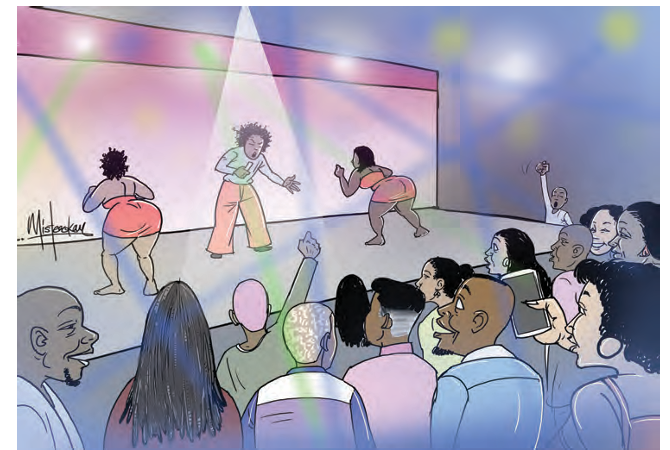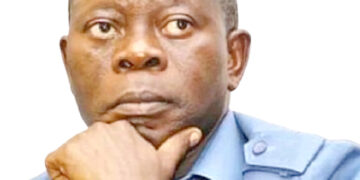For the last month, Lagos has been nothing short of a festive paradise, as it hosted the 2024 iteration of the now-legendary “Detty December.” This season of extravagant parties, lavish hotel bookings, and an incessant parade of owambes has been touted by some as proof that Nigeria’s economy is, in fact, booming. And who could argue with such compelling evidence? Never mind the inflation rates, the depreciating naira, and the rising unemployment—these little details can easily be overshadowed by the glittering spectacle of Lagos in party mode. According to some, the successful month-long celebration is all the proof we need that Nigeria’s economic performance is in top shape.
But is this truly an accurate reflection of the state of the Nigerian economy? If we are to take this argument seriously, should we now add the frequency of Instagram posts, hotel bookings, and the number of people attending music festivals to the list of critical economic indicators? Can the economic resilience of an entire nation really be measured by the attendance at high-profile concerts, or by how much money foreign tourists are willing to spend on luxury services while their Nigerian counterparts are struggling to make ends meet?
A Holiday High or a False Dawn?
Let us first acknowledge that “Detty December” is, indeed, an event of cultural significance. The parties, concerts, and social gatherings that define this period have become an integral part of Nigeria’s growing global influence. It’s not every day that international stars flock to a country like Nigeria to perform before thousands of adoring fans. The success of these events reflects a booming entertainment industry, which should not be dismissed. However, to equate the vibrancy of this brief, celebratory season with the overall health of the Nigerian economy is, at best, naive and, at worst, dangerously misleading.
The problem with this argument lies in the very nature of what constitutes a “successful” December in Lagos. It is true that the tourism and entertainment sectors experience a spike during this time, driven largely by well-heeled Nigerians and foreign visitors eager to partake in the revelry. But can we honestly say that this represents a fundamental, sustainable shift in the country’s economic trajectory? Certainly not. This spending is more reflective of a nation escaping from its economic troubles than of one making substantial strides toward prosperity. While foreign visitors may have found Lagos to be a cheap and vibrant destination, locals have seen little relief in the day-to-day grind of inflation and rising living costs.
For an economy to be considered strong, the purchasing power of its citizens should be on the rise, not on the decline. The success of Detty December might suggest that luxury services are doing well, but this does nothing to address the plight of the average Nigerian, whose real wages have been battered by inflation. In fact, celebrating the brief uptick in luxury consumption during the festive season is akin to applauding a temporary sugar high while ignoring the more pressing issue of long-term economic health.
The Naira Depreciation Fallacy
Another curious piece of the narrative being spun by some economic commentators is the supposed benefit of the naira’s depreciation. According to this line of thinking, a weaker naira makes Nigeria an attractive destination for foreign tourists, thus giving a boost to the hospitality and entertainment sectors. The argument goes something like this: because the naira is weaker, foreigners can now afford to spend more while in Nigeria, stimulating the economy. At first glance, this might seem plausible. However, the reality is far more complicated.
For the local population, the depreciation of the naira is a double-edged sword. While foreigners may find the exchange rate advantageous, the same cannot be said for the average Nigerian who sees their purchasing power diminish daily. The fact that foreign tourists may spend more on luxury goods while Nigerians are pinching pennies to afford basic necessities is not a positive sign for the economy; it is a clear indication that the country’s wealth is being concentrated in the hands of the few, while the vast majority is left to fend for itself.
If the economic growth of Nigeria is to be gauged by how many foreigners are coming in to take advantage of a favourable exchange rate, then we must ask: At what cost? For an economy to truly be considered prosperous, its growth should be inclusive, benefiting all citizens, not just those with deep pockets or foreign passports.
Distraction from Structural Failures
The overemphasis on the success of Detty December distracts from the structural failures that continue to plague Nigeria’s economy. The revelry in Lagos might present a dazzling façade of economic vitality, but behind the scenes, the reality is less glamorous. Basic infrastructure—roads, transportation, and utilities—continues to suffer from years of neglect. The nation’s energy sector is in crisis, and businesses are forced to cope with inconsistent power supply, crippling energy costs, and an unpredictable regulatory environment. These are the issues that should be at the forefront of any discussion about Nigeria’s economic future, yet they are conveniently overlooked in favor of ephemeral successes in the entertainment industry.
Moreover, the real indicators of economic prosperity—such as GDP growth, job creation, and industrial output—paint a much less rosy picture. Unemployment remains a pressing issue, with millions of Nigerians unable to find work in an economy that increasingly relies on low-wage, informal labour. Industrial growth has stagnated, and the country remains overly reliant on oil exports, with little effort to diversify its economy. Meanwhile, essential services such as healthcare and education continue to face chronic underfunding. These are the structural issues that require attention if Nigeria is to achieve lasting economic success. Partying through December may provide a temporary reprieve, but it does nothing to address the systemic problems that underpin the country’s economic struggles.
A Shift in Economic Metrics?
In the new reality we are being presented with, perhaps it is time we rethink how we define economic success. If the number of attendees at a concert or the amount of hotel bookings can now be considered reliable economic indicators, then perhaps we should start measuring the health of the economy by the number of selfies taken at popular tourist spots. Perhaps we should start evaluating economic policy based on how many people can afford to rent a luxury apartment for the night, regardless of the broader economic landscape. This would certainly be a radical departure from the traditional methods of economic analysis, but it seems to be the direction some are heading.
For now, the truth remains that the economic indicators we should be focused on are not the number of parties happening in Lagos or how many tickets are sold for concerts. Instead, they are the core issues that directly impact the livelihoods of millions of Nigerians—the strength of the naira, inflation rates, access to healthcare, job creation, and industrial growth. Until these fundamental issues are addressed, any attempt to paint a picture of economic prosperity based on short-term luxury spending is, at best, misguided and, at worst, dangerously deceptive.





